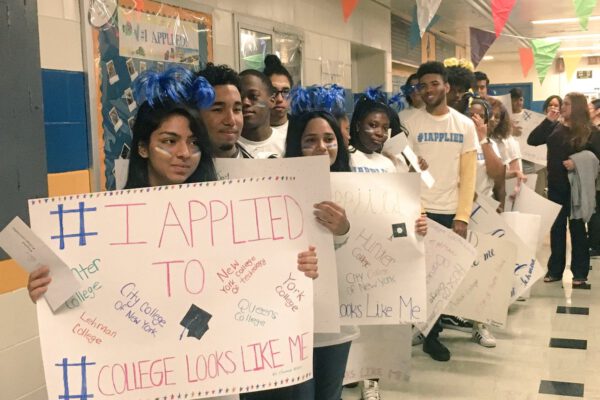The College Presidential Search and Equity-Minded Principles
Title: Equity-Minded Principles for Presidential Searches in Higher Education
Author(s): Jorge Burmicky, Kevin R. McClure, Jordan Gonzales, Cameron J. McCoy
Source: American Council on Education (ACE) & TIAA Institute
ACE has partnered with the TIAA Institute through the American College President Study on a new report that identifies five equity-minded principles for conducting presidential searches.
The report explores key steps of the typical search process and connects equity-minded principles to each step with the goal of changing the protocols, practices, and norms that form the pathway to the college presidency.
The report found that a search based on equality would allow governing boards and search committees to identify the best qualified candidate for the presidency while also providing a foundation for equity and stability as institutions manage current political, educational, and societal issues.
The five equity-minded principles outlined in this brief offer a way for governing boards and search committees to disrupt traditional hiring routines formed by norms and ameliorate the exclusion of highly qualified individuals who have been historically marginalized in these processes:
- Challenge perceptions of what constitutes a good candidate: Recognize that talent comes in many forms and don’t tie risk and level of experience together for decision making.
- Don’t expect minoritized candidates to be superheroes, and be prepared to support them.
- Examine implicit bias and participate in meaningful bias training: Creates a committee to reflect on biases and focus on intentional open-mindedness.
- Shape an intentional and inclusive presidential leadership prospectus: Use a written prospectus that feels inclusive and does not make candidates “self-select out.”
- Be mindful in the selection of search firms.
The report recommends when going through the search process to ask equity-minded questions such as:
- How can your firm make the search equitable for all candidates?
- What is your firm’s history of hiring finalists from diverse and nontraditional backgrounds?
- What practices does your firm employ during the search to address mechanisms of exclusion, microaggressions, and bias toward candidates?
- How does the firm you intend to hire train consultants to recognize their biases?
- Does your firm offer bias training to committee and board members? How is their bias training different from the one offered at your institution, assuming you have one?
- How does your firm ensure that the members of the search committee adhere to the equity-minded principles taught in the training?
To explore the findings and methodology, click here.
—Alexandria M. Falzarano
If you have any questions or comments about this blog post, please contact us.


